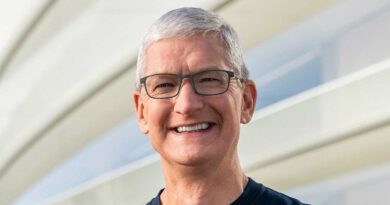Suddenly in South Africa, some reason for cheer
Cyril Ramaphosa
President Cyril Ramaphosa is finally making good on a longstanding pledge to enact policy reforms, signalling the tide may be turning for the coronavirus-battered economy.
The ANC sidelined his main rival, Ace Magashule last month, cementing his control of the party and giving him more leeway to take tough decisions. Since then, his administration has sold a majority stake in the state airline and taken a decisive step to tackle crippling energy shortages. It’s also reduced the debt exposure of the state power utility and a fund that compensates road accident victims — the government’s two biggest contingent liabilities.
With the unemployment rate sitting at a record high of 32.6%, the country in the midst of a third wave of Covid-19 infections and anger rife among millions of shantytown residents about a lack of housing, water and basic services, a policy shift is overdue.
“The president, I think, feels more confident and stronger within the ANC,” said Johann Els, an economist at Old Mutual Investment Group in Cape Town. This year could be a turning point for South Africa, with the improved political environment, strengthening currency and strong commodity prices all bolstering business and consumer sentiment, he said.
GDP expanded at a faster pace than most economists forecast in the first quarter, after shrinking the most in a century last year, while business confidence, as measured by two separate indexes, is higher than before the pandemic. The rebound should be aided by a Covid-19 inoculation campaign that’s gathering momentum after a painfully slow start.
Raft of good news
The improved outlook and reforms have buoyed the financial markets, with the rand gaining 5.7% against the dollar since the start of last month and the FTSE/JSE All Share Index close to a record high.
The raft of good news comes at an ideal time for Ramaphosa, who’s long been pilloried by opposition parties for being indecisive and failing to get to grips with the pandemic and the economic devastation it’s wrought. The country is due to hold municipal elections in October, with the ANC looking to regain control of several key cities it lost to opposition coalitions five years ago.
Ramaphosa, 68, a lawyer and former labour union leader who led the talks that ended white minority rule, is also up for re-election as ANC leader next year. A faction that wants to unseat him suffered a setback when its de facto head, Magashule, was suspended as party secretary-general while he stands trial on graft charges.
 Despite Ramaphosa’s good run, he still confronts daunting challenges. The coronavirus continues to wreak havoc — 1.74 million people have been diagnosed with the disease so far and hospitals are filling up with new cases.
Despite Ramaphosa’s good run, he still confronts daunting challenges. The coronavirus continues to wreak havoc — 1.74 million people have been diagnosed with the disease so far and hospitals are filling up with new cases.
Curbs that were instituted to try and slow the pandemic’s spread have deeply scarred the economy, with output only expected to return to pre-virus levels in 2023. Only 15 million people out of a working-age population of 39.5 million were formally employed in the first quarter.
The country is also being subjected to rolling blackouts as Eskom struggles to meet electricity demand from its old and poorly maintained plants. Licence requirements were eased on 10 June to make it easier for companies to produce their own power, but it will take several months before new plants start operating and ease supply constraints.
The economic reforms and Covid-19 inoculation programme need to accelerated, said Thabi Leoka, an independent economist. So far, 1.76 million people have been given a shot, less than 3% of the population.
“It is a race between the virus and the vaccine, and so far in South Africa the virus is winning,” Leoka said. “Until such a time that we’re vaccinated and our roll-out is sorted, we’re going to also struggle even if we implement every policy that we’re supposed to implement.”
On balance, Ramaphosa’s fortunes are looking up, according to Anthony Butler, a political science professor at the University of Cape Town and the author of a biography of the president.
“Recent events have left Ramaphosa somewhat less hemmed in politically than before,” Butler said. “He is now well positioned to deliver a message of hope to the voters ahead of the local government elections.” — Reported by Mike Cohen and Prinesha Naidoo, (c) 2021 Bloomberg LP
Source: techcentral.co.za



